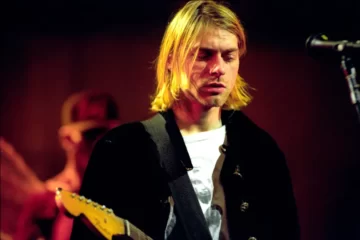George Harrison always believed in the yin and yang of existence. All of life’s repercussions worked on a pendulum, and it was only a matter of time before any bad weather subsided to pave the way for a brighter future. After going through the fallout of his broken marriage on the album Dark Horse, Harrison continued falling further down the spiral on Extra Texture.
Although no one would guess that the album is heading south based on the opening single ‘You’. Originally meant for vocalist Ronnie Spector, Harrison is showing off his higher register with some of the most energetic singing that he’s ever laid down. For all of the songs he’s made about his spiritual devotion or the teachings he wanted to impart to his audience, it’s nice to hear Harrison dropping everything to talk about his love for a girl.
As it turns out, this is one of the only points of jubilation on the entire record, with the album taking a nose dive right after on the song ‘The Answer’s At The End’. While it’s far from a trainwreck, Harrison’s crawling melody and the criminally solo tempo of the song make everything feel like a dirge that begs the listener to hit the skip button.
In fact, most of the songs have a tendency to never quite get out of first gear, with ‘Tired of Midnight Blue’ on the back half of the album having the same problem. Whereas the early days of Harrison’s solo career had a hook every few minutes, the listener is left waiting for minutes on end for any sort of hook until they find out that the song’s already over.
Then again, the album does have its fair share of surprises, with Harrison penning a sequel to his Beatles classic ‘While My Guitar Gently Weeps’ on ‘This Guitar (Can’t Keep From Crying)’. While the sequel to one of his greatest songwriting achievements is intriguing, it pales compared to the original, especially with the sounds of a synthesiser taking away from the guitar. The song’s tone might be more accurate to an instrument in a depressed mood, but what manifests is more of a gentle sob than a genuine cry of pain.
For all of the many struggles with pop rock throughout the album, Harrison does fairly well injecting some soul into the album. Unlike his bandmates, Harrison’s admiration of artists like Smokey Robinson is most apparent on this album, with his turn on ‘Ooh Baby Baby (You Know That I Love You’ going over incredibly well. Instead of the conviction that fans would get from songs like ‘My Sweet Lord’, Harrison’s sweet vocal ad-libs feel like they’re pulled straight out of the Curtis Mayfield playbook.
Although there are faint wisps of happiness, Harrison is not happy looking through his lyrics. While he may have been the more God-conscious version of himself throughout his career, the lyrics behind the songs are either drab or bitter, depending on which song comes on.
The most tragic comes in ‘Grey Cloudy Lies’, where Harrison talks about being the most depressed in his life, including a striking lyrical image where he’s talking about holding a pistol to his head and not wanting to live with any more teardrops in his eyes. There are also a few jabs at Rolling Stone for bad-mouthing his Dark Horse tour the year before, which are quite jarring coming from the same man who says that he’s quote “happier than [he’s] ever been” in the same song.
Outside Harrison’s drab songwriting, the backing band is doing a lot of the heavy lifting on the album, with music legends like Leon Russell and Nicky Hopkins contributing phenomenal keyboard work behind the songs. This makes most instruments pop out of the mix, even when paired with something a little toothless. No matter how basic a song like ‘You’ could be, the band give their all to it and make it sound like one of the world’s greatest pop songs for those three minutes.
As the album grinds to a halt, though, some of the backing musicians feel like they would be better utilised on almost any other song. Take the closing track ‘His Name is Legs’, for instance. Outside of the bonkers title, Willie Weeks is delivering some delicious bass lines, only for Harrison to come in with a comedic track about one of his friends he had met while working with the Monty Python crew.
Once the record flips over, it’s easy to see that Harrison didn’t have much confidence in the rest of his material, bringing back the chorus of ‘You’ rearranged for just a few seconds before going into the rest of the album. For the musical equivalent of NyQuil that has happened through most of the album, having the one perfect song returning is practically taunting you.
While fellow Beatles John Lennon and Paul McCartney had begun to find their voices towards the end of the 1970s, Extra Texture is the sound of Harrison finally burning out, having been worked too thin on the previous tour. Despite being one of the Beatles’ first success stories, some of the more forgettable tracks on the album are the audio equivalent of Harrison running out of gas.
After already making one of the most mellow albums of his solo career a few years prior, this sudden shift towards pop and soul music marks one of the low points for Harrison’s solo years. Though the pendulum was bound to swing back towards optimism soon, this was when the Quiet Beatle’s hard-partying began to get the better of him. There might be extra texture here, but any other layer doesn’t matter when it’s mostly plastic.



